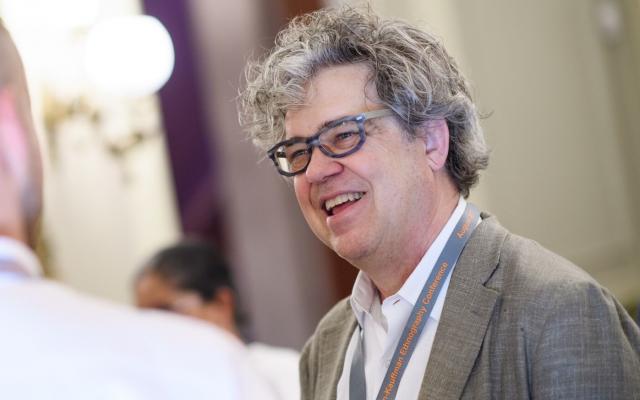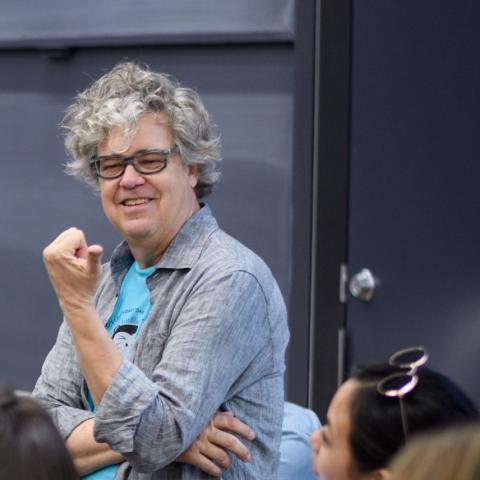
EGR 385 / ANT 385 Ethnography and Wicked Problems is the newest Keller Center course that will be offered in the fall 2017. Taught by Ken Anderson, who is a Principal Engineer at the Intel Corporation and serves as the James Wei Visiting Professor in Entrepreneurship and Design Thinking for 2017-18. This innovative course introduces students to approach problems ethnographically and develop service solutions. Security/privacy will be the problem space for the course and will cover multiple modes of ethnography, "inventive methods" that explore the intersection of design and interpretive social science. EGR 385/ANT 385 will provide a tool set for students interested in entrepreneurship, design thinking, as well as, new types of outcomes for research in the social sciences, and finally, a human-centered view on security.
When asked what made him want to teach a course on Ethnography and Wicked Problems? Anderson's reply is, "that in the past 5 years the opportunity for me to work on wicked problems in the corporate environment have been somewhat limited. Previously, I’ve worked on issues around air, water, energy, agriculture, and access to resources. Wicked problems have presented opportunities to work through solutions that may involve innovating new technologies or new uses for technologies we already have. Further, wicked problems are places where we can create true social impact, as well as generating new business opportunities; At the same time, they are, well, wicked, so the challenges are non-trivial. Developing solutions means stretching one’s mind and talents – so teaching the classes is a ‘stretching exercise” for me and the students; Wicked problems are system problems, or maybe even better interlocking systems of problems. Anthropology, using ethnographic methods, takes a holistic approach – it is about systems of relationships, power, meaning, etc. Anthropologists are trained to discover and analyze the power dynamics and interaction connections between parts of ecosystem, which is needed to come up with solutions.; I understand that Princeton is a very diverse community, however, it is often difficult even for really smart empathetic people to understand people in other situations than our own. An ethnographic approach creates a deep understanding of the experience of the participants involved. The experience approach can guide thinking along not just empathy but creating viable solutions. It is a human and humanity based approach to the social and cultural; In wicked problems it is often a matter of reframing the problem, more than problem solving. Ethnographers are notorious reframers - making the familiar strange and the strange familiar. The ethnographer is trained to deal multiple contexts and constituents to create multiple emergent opportunities.
Ken Anderson is on leave from Intel, where he has been innovating around the social-technical for the past 15 years. Ken was trained as an anthropologist and spends a good portion of his time in field research to observe, document, and analyze the rich tapestry of everyday life as the foundation for innovation. His scholarship draws together theories and methods from social sciences, humanities, and business practices to create experimental systems and services. He has developed "inventive" methods and run massive research and business experiments at the micro, meso, and macro levels. At Intel, he has started up the first Energy Lab, provided the research basis for new Intel products, developed the foundation for a shift to data economy, and recently established the cross-company "5G Innovators Initiative." Currently, he is exploring technologies, transformational business opportunities, and cultural values around smart cities, civic participation industrial IoT, and intelligent agents. As our lives are increasingly digital-physical hybrids, it is more important than ever to understand the structures of everyday life to create human options for technology and business innovation.
Ken is co-founder of EPIC People, an organization of ethnographic practitioners developed to create knowledge, share expertise, expand opportunities, and promote ethnographic research in corporate contexts. His work has appeared in wide range of publications including computer, public health, anthropology, and business journals.
